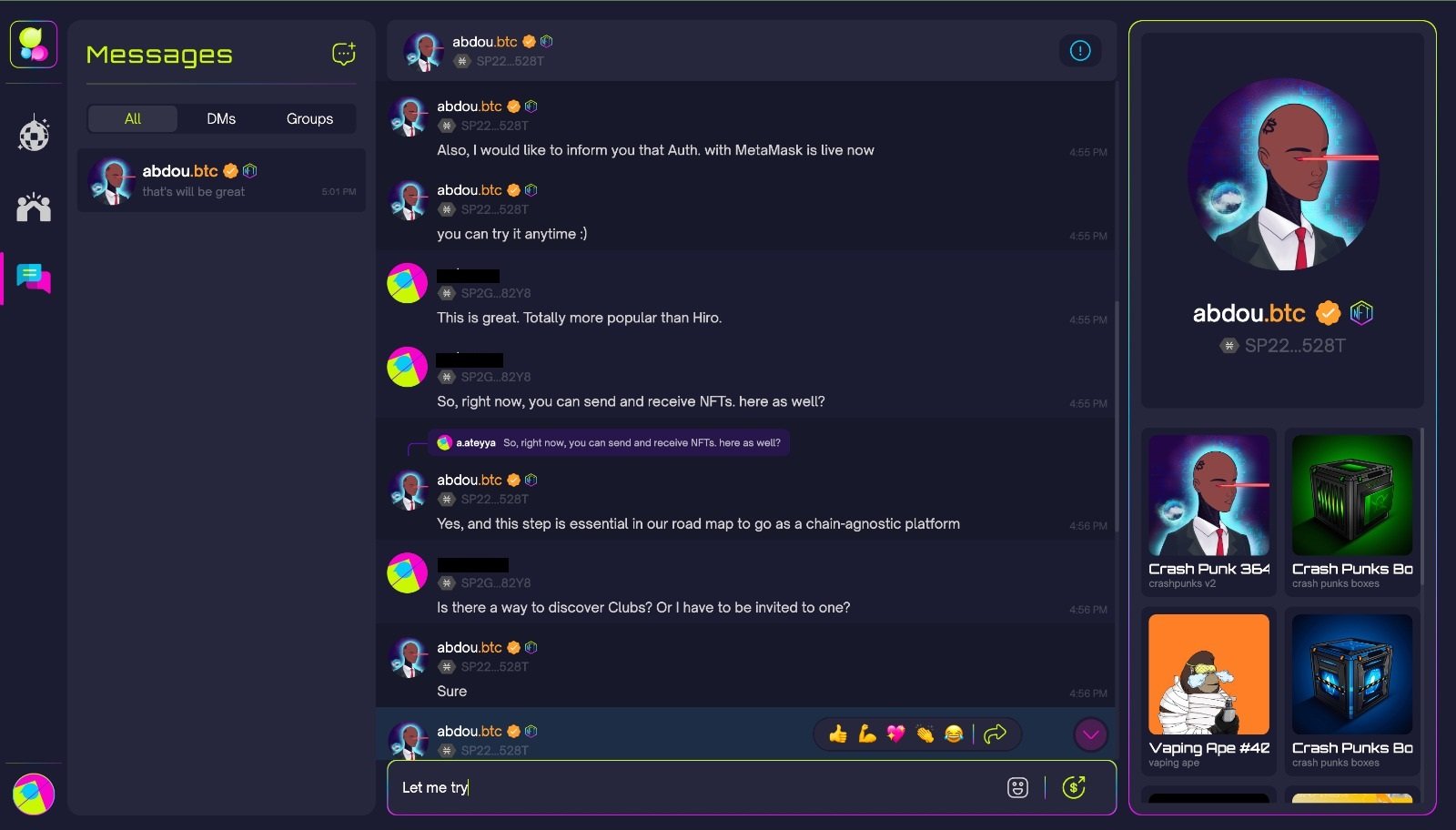Chatting on Blockchain? Pravica Wants to be the De Facto Web3 Messaging App
A chatting app secured by blockchain to ensure privacy and increase user control

Eight years ago, Egyptian software engineer Mohamed Abdou got introduced to blockchain technology during a business trip to the U.S.
“I immediately got how web3 technology can grant people the highest level of privacy,” he told me recently.
He returned to Egypt and dedicated himself to building in the upcoming space. Today, he is the founder and chief executive officer of Egypt-born and UAE-based blockchain startup Pravica, which has been developing web3, chain-agnostic, private and secure messaging infrastructure and protocols.
Pravica has a bold offering – chatting and messaging products based on decentralized identities that are secured on public blockchains. In January 2023 it secured its second investment round of undisclosed funding from Adaverse, the Cardano blockchain’s startup accelerator, to help it expand and achieve its vision.
Decential spoke with Abdou about where Pravica is at and where it is heading.
Decential: What is Pravica, and how does it work?
Mohamed Abdou: Pravica is a blind service provider. We do not know what you send, what you say, or what you receive. For now, we offer people to use our network for free. Soon, users will be able to use a service like Storj or IPFS to create buckets and store their own data.
Pravica is built on the Stacks blockchain, which is connected to the Bitcoin network. Once a smart contract is deployed, and a transaction is settled on the Stacks, there is a single hash value for this transaction on the Bitcoin network. It inherits Bitcoin security.
A screen shot from Pravica Club
Decential: Does this mean that Pravica will be exclusive for Stacks users?
MA: No. Web3 startups usually start with a focus on one blockchain and expand to other ecosystems. For now, users can create WISE Wallets on their phones or Hiro wallets on their computers, authenticate their identity and make an .id.stx name or a .btc name.
Our vision is that Pravica can accommodate any decentralized identity. Our latest funding is from Adaverse, Cordano’s ecosystem accelerator. We are planning to integrate Metamask, .eth addresses, and so on. We currently have 45,000 registered identities, but we do not monitor their activities or the frequency of using the service.
Decential: Aside from the backend technology, how is Pravica's user experience different from web2 chatting apps?
MA: You only receive communication from people you know—no random advertisements like WhatsApp or bots like Discord. It is a spam-free platform.
We have three products. Pravica messenger in iOS for individuals. Pravica messenger plus for enterprises. Our primary focus, for now, is on Pravica Club, which has many exciting features. Users can communicate with each other in groups, create clubs or chat rooms, create token-gated communities, and exchange NFTs. In our vision, we are planning to add more decentralized autonomous organization (DAO) managing tools and much more.
One cool feature is that users can highlight a significant part of the conversation, make it public, and store it on the blockchain. Let’s say a manager promises an employee a raise, or a guy tells his girlfriend, “I love you,” for the first time. They can document the message on the blockchain so that it will be there forever, even if Pravica no longer exists, it finally ends with one transaction ID that represents the conversation. We call it “Eternal Message.”
Decential: When will Pravica apps be available in alpha mode, and how do you plan to make money?
MA: Our basic services will always be free, but we are adding premium paid features, and we will collect transaction fees for executing smart-contract-based functionality.
We are enhancing and creating new fixes all the time. We do not gather data from users, so we rely on them volunteering to report bugs. We have been recently chosen to participate in the TChallenge, which is T-Mobile’s web3 competition as the only web3 company from Africa and the Middle East. We will launch new features by the time it concludes in May 2023.
Decential: How easy is it to create a privacy blockchain app in Egypt, with its laws regarding communications and cryptocurrencies?
MA: We are a communication tool. We do not promote using cryptocurrencies and do not issue tokens at the time being. As for privacy, we are not the only encrypted communication tool in the market. There is Signal, for example. You cannot outlaw an entire technology and say, “blockchains are illegal.” We are also registered in UAE and U.S.
Decential: What are the challenges facing blockchain chatting apps?
MA: Building in web3 takes a lot of work. When we first started, there was not even a mobile wallet for the native mobile app authenticating identities on Stacks. We built the wallet and made it open source and available to the community and users, so we are building from scratch.
Adoption remains a challenge, but it is growing as more people value their privacy. It became widely known that when a web2 service is free, users are the products.

